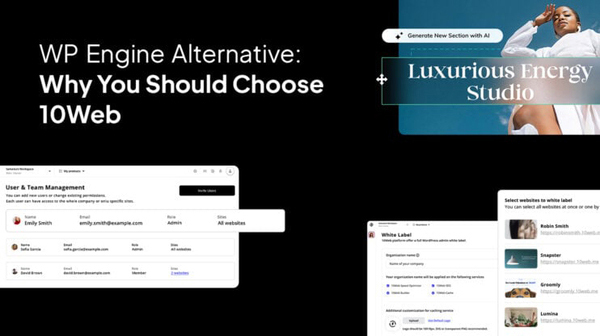A Beginner’s Guide to Website for Harbor Freight Tools
Website for Harbor Freight Tools Resources
Website for Harbor Freight Tools
In this modern digital age, having a professional and user-friendly website is crucial for any small business looking to attract customers and generate leads. However, hiring a professional web designer can be costly, especially for small businesses with limited budgets. This is where website builders come in handy. Website builders are tools that allow users to create websites without any coding or technical skills. There are many options available, but finding the best free website builder for small businesses can be a daunting task. To help you make an informed decision, we have compiled a list of the top free website builders for small businesses.

The Ultimate Guide to Website for Harbor Freight Tools
Website for Harbor Freight Tools
What is a website builder?
A website builder is a tool that allows users to create and customize their own websites without needing to know how to code. These platforms typically offer a variety of templates and drag-and-drop tools that make it easy for even those with limited technical skills to create a website that fits their needs.
Inexpensive website builders offer affordable options for those looking to create a website on a budget. While some of these platforms may have limitations in terms of customization and functionality compared to more expensive options, they still provide a cost-effective way to get your website up and running quickly.
Features of inexpensive website builders
While the features offered by inexpensive website builders may vary, there are some common features that you can expect to find across many platforms:
1. Templates: Most website builders offer a selection of pre-designed templates that you can customize to create a unique look for your website. These templates are typically responsive, meaning they will look good on any device, from desktop computers to smartphones.
2. Drag-and-drop tools: One of the key features of website builders is their drag-and-drop functionality, which allows you to easily add and rearrange elements on your website without needing to know how to code.
3. E-commerce capabilities: Many website builders offer built-in e-commerce tools that make it easy to set up an online store and start selling products or services.
4. SEO tools: Some website builders include basic SEO tools that help you optimize your website for search engines, making it easier for potential customers to find you online.
5. Custom domain and hosting: Many website builders offer the option to purchase a custom domain and hosting directly through their platform, making it easy to get your website up and running quickly.
6. Customer support: Most website builders offer customer support to help you troubleshoot any issues or answer any questions you may have while building your website.
Best inexpensive website builders
There are many inexpensive website builders available, each offering different features and pricing options. Here are some of the best options for creating a professional website on a budget:
1. Wix: Wix is a popular website builder that offers a range of pricing plans, including a free option with basic features and paid plans starting at just $14 per month. Wix’s drag-and-drop tools and customizable templates make it easy to create a professional-looking website without any coding knowledge.
2. Weebly: Weebly is another user-friendly website builder that offers a free plan with basic features and paid plans starting at $6 per month. Weebly’s e-commerce tools and responsive templates make it a great option for small businesses looking to sell products online.
3. Squarespace: Squarespace is a visually stunning website builder that offers plans starting at $12 per month. With its modern templates and powerful customization options, Squarespace is a great option for creatives and small businesses looking to make a statement online.
4. WordPress.com: WordPress.com is a popular website builder that offers a free plan with limited features and paid plans starting at $4 per month. While WordPress.com is not as customizable as self-hosted WordPress.org, it still offers plenty of flexibility and functionality for those looking to create a professional website on a budget.
1. Text Editors
One of the most basic tools for web development is a text editor. Text editors are used to write and edit code for websites. There are many different text editors available, each with its own set of features and capabilities. Some popular text editors include Sublime Text, Atom, and Visual Studio Code. These text editors offer features like syntax highlighting, code completion, and easy integration with other tools.
2. Integrated Development Environments (IDEs)
Integrated Development Environments (IDEs) are comprehensive tools that provide everything a developer needs to build websites. IDEs typically include a text editor, debugger, compiler, and other tools for building and deploying websites. Some popular IDEs for web development include IntelliJ IDEA, Eclipse, and NetBeans. These tools are ideal for developers working on complex projects that require advanced features and capabilities.
3. Version Control Systems
Version Control Systems are essential tools for tracking changes to code and collaborating with other developers. Version Control Systems like Git allow developers to track changes to their code, revert to previous versions, and merge code from different developers. Git is a widely used version control system that is easy to learn and offers powerful features like branching and merging.
4. Browser Developer Tools
Browser Developer Tools are built-in tools that allow developers to inspect and debug websites directly in the browser. These tools provide information about the structure, layout, and performance of websites. Browser Developer Tools also allow developers to test and optimize websites for different devices and screen sizes. Popular browser developer tools include Chrome DevTools, Firefox Developer Tools, and Safari Web Inspector.
5. Package Managers
Package Managers are tools that help developers manage dependencies and libraries in their projects. Package Managers like npm (Node Package Manager) and Yarn allow developers to easily install, update, and remove libraries in their projects. Package Managers also help developers manage different versions of libraries and ensure that all dependencies are up to date.
6. Task Runners
Task Runners are tools that automate repetitive tasks in the web development process. Task Runners like Gulp and Grunt allow developers to automate tasks like minification, concatenation, and compiling code. Task Runners save time and effort by streamlining the development process and making it easier to build and deploy websites.
7. CSS Preprocessors
CSS Preprocessors are tools that extend the functionality of CSS by adding features like variables, mixins, and nesting. CSS Preprocessors like Sass and Less help developers write more organized and maintainable CSS code. These tools make it easier to style websites and ensure consistency across different pages and components.
8. Code Editors
Code Editors are specialized tools for writing and editing code. Code Editors like CodePen and JSFiddle provide a lightweight and easy-to-use environment for writing HTML, CSS, and JavaScript code. Code Editors are ideal for quick prototyping and testing code snippets before integrating them into larger projects.
9. Performance Monitoring Tools
Performance Monitoring Tools help developers identify and fix performance issues on websites. Tools like Lighthouse, PageSpeed Insights, and WebPageTest analyze websites and provide recommendations for improving performance. Performance Monitoring Tools help developers optimize websites for speed, responsiveness, and user experience.
10. Cross-Browser Testing Tools
Cross-Browser Testing Tools help developers ensure that websites look and work correctly in different web browsers. Tools like BrowserStack and CrossBrowserTesting allow developers to test websites on multiple browsers and devices simultaneously. Cross-Browser Testing Tools help developers identify and fix compatibility issues that may arise when users access websites from different browsers and devices.

Website for Harbor Freight Tools Solutions
Website for Harbor Freight Tools
In conclusion, web design plays a crucial role in establishing a strong online presence and engaging with your target audience. By incorporating creative and innovative design ideas, you can make your website more visually appealing, user-friendly, and memorable. Whether it’s experimenting with minimalistic layouts, bold typography, interactive elements, or personalized features, there are countless ways to elevate your website and make it stand out from the competition. By staying updated on the latest web design trends and incorporating best practices, you can create a website that not only looks great but also delivers a seamless and enjoyable experience for visitors.


